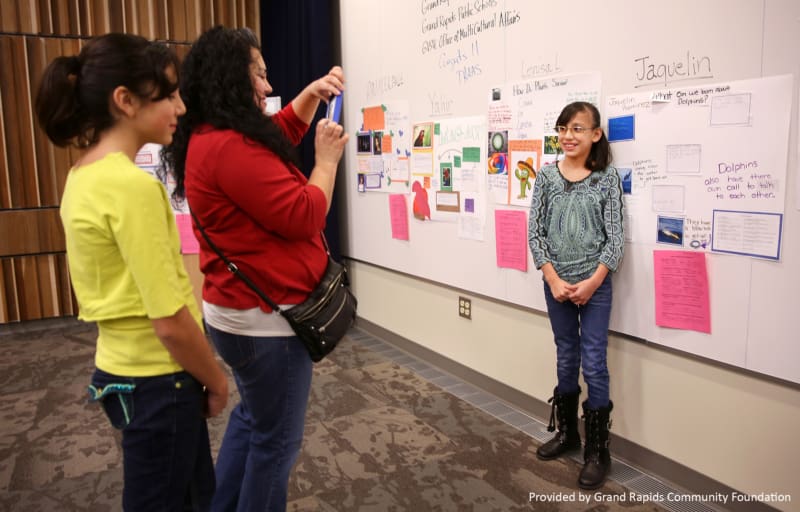One of the fastest-growing areas in Grand Rapids, Michigan, the West Side is a vibrant community in the heart of the city. Initially populated by Polish immigrants, the area now hosts a large Latino community, following its tradition as a welcoming neighborhood for hard-working immigrants. But the neighborhood is one of the city’s most underserved. Many students come from economically disadvantaged families; 25% of adults lack a high school diploma and another 53% have no education beyond high school.
Looking for a way to support educational opportunities in the community, the Grand Rapids Community Foundation (GRCF) partnered with the Grand Rapids Public Schools (GRPS) to develop a place-based initiative called Challenge Scholars. The program offers a free college or vocational education upon graduation. But it goes beyond traditional “promise programs.”
In addition to the program’s “last dollar” scholarship (which covers all expenses, including room and board, beyond any available financial aid), Challenge Scholars provides wrap-around supports for students and their families starting in sixth grade. This unique approach includes enhanced instructional support, health and human services, supports to create college awareness and aspirations, and family engagement.
Leaders from GRCF and GRPS recognized the challenge of finding the right way to assess the Challenge Scholars program because the evaluation would need to evolve along with the needs of the community and be able to accommodate school district changes and other external conditions. Hence, they partnered with FSG to co-create an adaptive and flexible evaluation design using a “developmental evaluation” approach. As the evaluation unfolds and new insights emerge, FSG works with initiative leaders to prioritize key learning questions, add or eliminate data collection activities, and expand and adjust the pool of data sources.
Throughout the evaluation, FSG has identified ways to build capacity among Challenge Scholars stakeholders to receive feedback and to use information to drive decision making. The FSG team debriefs the project leaders after site visits and follows up with a learning memo to highlight what is working and what needs attention. At bi-annual meetings with a broader group of key stakeholders, FSG delves into deeper findings and insights. These informal and formal learning processes generate synthesis and meaning as the evaluators share their data and observations and work side-by-side with the program leaders.
Bringing a complexity lens to the project has allowed FSG to be more responsive to the needs of the initiative, making it possible to build a high level of trust and engagement that enables the evaluation to go deeper, revealing assumptions that may not otherwise have been explicit, creating shared ownership for the evaluation findings, and setting the tone for prioritizations and improvements across the board. Key findings concerning family engagement, college and career culture, and student readiness have helped move the initiative forward. As the Challenge Scholars initiative looks toward the next several years, the evaluation will remain a key source of learning that will help the West Side community continue to thrive.
About the Grand Rapids Community Foundation
The mission of the Grand Rapids Community Foundation is to build and manage our community’s permanent endowment and lead the community to strengthen the lives of its people.

